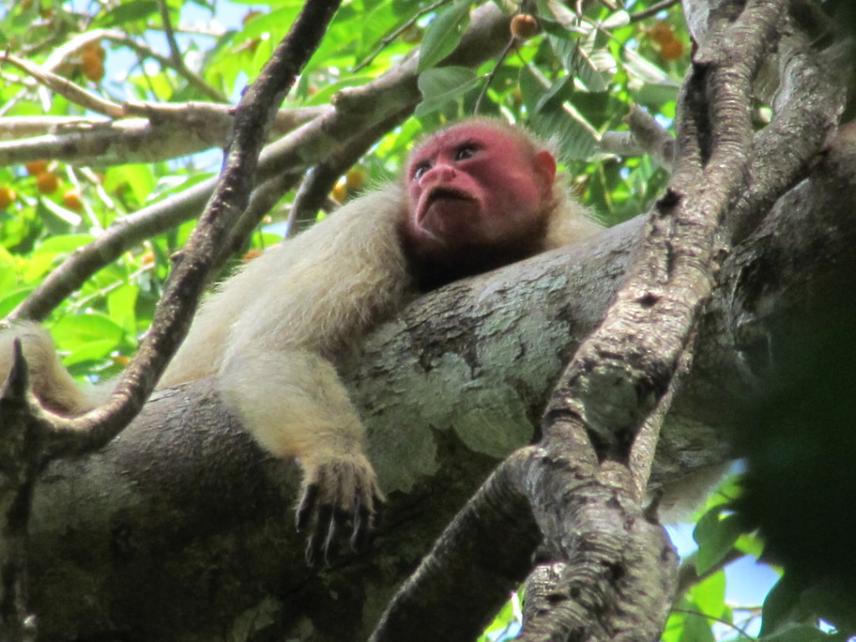Felipe Ennes Silva
Other projects
11 Oct 2017
Habitat Suitability, Geographic Distribution and Conservation of the Bald-Headed Uakaris (Cacajao calvus ssp.) in the Amazon Rainforest, Brazil
24 Jan 2023
Using Field Surveys and Genomics to Unveil the Population Status of Bald-Headed Uakaris (Cacajao spp.) in Amazon Rainforest, Brazil
To assess the ecology and behaviour of uakaries in areas where there are different pressures of selective logging in Mamirauá Reserve.

The study of the ecology and behaviour of primates has been fundamental to develop conservation strategies. The Amazon flooded forests present a unique scenario to understand how the biota adapts front of seasonal environmental variations. The white-uakaries (Cacajao calvus calvus) is considered a frugivore specialised in immature seeds and a habitat-specialist of the flooded forests. The specialisation in seed predation on fruits at different levels of ripeness was seen as an essential factor in the survival of this species in this ecosystem.
This project aims to assess the ecology and behavior of white-uakari (Cacajao calvus calvus) in areas where there are different pressures of selective logging in Mamirauá Reserve of Sustainable Development. We will assess how the activity patterns, home range and the feeding ecology vary in these areas. We will use telemetry equipments for the monitoring of uakaries ecology and behavior. The most important tree species of commercial and ecological value will be assessed in order to design an approach taking into account their ecological function for uakaries conservation. We will strength the relationship with local people by training them to collect data on tree measurements and phenological data in a long term. Scholar notebooks with information of local primate species will be provide for schools located in three communities where this project will be conducted.
The results of this study will be important to understand the behavioral ecology of this genus that remains one of the least studied among the Neotropical primates. In a long term, it will contribute to a comparative perspective of the diversity of the behavioral responses of the genus Cacajao to ecological fluctuations in flooded forest. The results of this project will provide a baseline to integrate the selective logging of tree species of commercial value and ecological interest in a participatory forest management program.